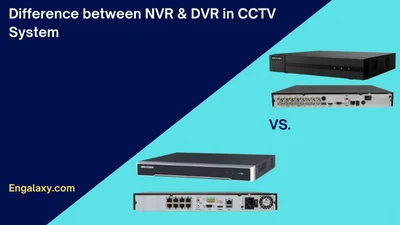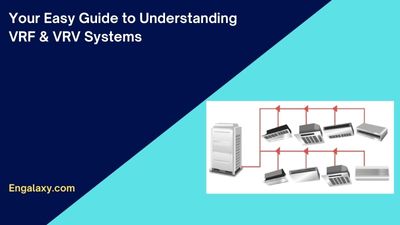When it comes to security, CCTV systems have become an integral part of many businesses and homes in recent years.

While CCTV systems are increasingly present in the security industry, there are a few components that can be confusing or misunderstood.
In this blog post, you will know the difference between an NVR and DVR, or in other words dvr vs nvr in CCTV systems, and explain the significance of each component.
You will know the answers to the following questions:
- What is the difference between Analog and Digital recording?
- What does it mean the storage capacity in a CCTV system?
- What is connectivity means in the CCTV System?
- What is the video quality?
Moreover, it will provide a comprehensive overview of the differences between the two devices, so users can make an informed decision on which one is best suited for their needs.
We will also let you know a few tips on how users can get the most out of their CCTV system to ensure they maximize the security of their premises.
So, let’s get started.
1- Analog vs. Digital Recording
NVR and DVR are both types of security systems used to capture and record footage from CCTV cameras.
An important distinction between the two is in the type of recording they use.
NVR systems use digital recording, while DVR systems use analog recording.
Digital recording offers higher resolution, better color accuracy, and easier access to stored footage compared to analog.
Additionally, digital recording allows for remote access and remote viewing, something that analog recording does not.
Overall, digital recording provides a more effective and secure way to monitor your CCTV system.
2- Storage Capacity
One of the key differences between NVR and DVR in a CCTV system is the storage capacity.
NVRs are capable of recording higher-resolution videos with larger file sizes, while DVRs are limited to recording standard-definition footage.
As a result, NVRs typically have higher storage capacity than DVRs – up to 16 terabytes compared to 2 or 4 terabytes for DVRs.
This makes NVRs a better choice for monitoring larger areas, such as commercial complexes and public spaces.
Additionally, NVRs can store footage for longer periods of time than DVRs, allowing you to conveniently review footage even after long periods of time.
3- Connectivity
One of the main differences between an NVR and a DVR system is their connectivity.
In a DVR system, the analog cameras are connected directly to the DVR. This means that the only way to access footage or information from the DVR is to be physically connected to it.
On the other hand, an NVR system is connected to the cameras via IP networks such as Ethernet, Wi-Fi, and other wireless technologies, meaning it can be accessed remotely.
This makes an NVR system much more desirable for businesses and residences that need to monitor their locations from afar.
4- Video Monitoring Quality
The fourth major difference between NVR and DVR in CCTV systems is video monitoring quality.
NVRs have the advantage in this area, as they are able to capture higher-quality video footage due to their ability to use IP cameras.
IP cameras provide better resolution and quality video than analog cameras, which are used with DVRs.
Additionally, NVRs provide the ability to monitor multiple channels of video at once, while DVRs are limited to a single channel.
This can be a helpful feature if you need to keep an eye on several areas at once.
5- Ease of Installation and Setup
When considering the installation and setup of an NVR or DVR in a CCTV system, ease of installation and setup should be one of the most important considerations.
NVR systems are much easier to install and set up than DVR systems, as they require less wiring and fewer components.
This makes it easier and faster to install the system. NVR systems are also designed to be user-friendly, with all the components integrated into one unit, making it easier for the user to understand and operate.
On the other hand, DVR systems require more wiring and components and can be more complicated to install and set up properly.
In conclusion, the NVR and DVR are both important pieces of any CCTV system, and each has its own specific uses.
If you are looking for superior image quality, then NVR is the best choice. On the other hand, if you need a system that is compatible with older analog cameras, then DVR is the way to go.
Conclusion:
In the end, both systems have their own advantages and disadvantages, so understanding the differences between the two can help you to make the best optimum choice for your security needs.
If you would like to read more, all our blog posts can be found on this link:
You can have a look at our Free MEP Course from the below link:
https://link.urcoursez.com/freemep













